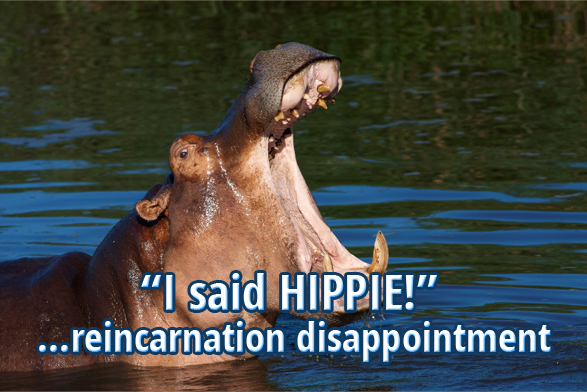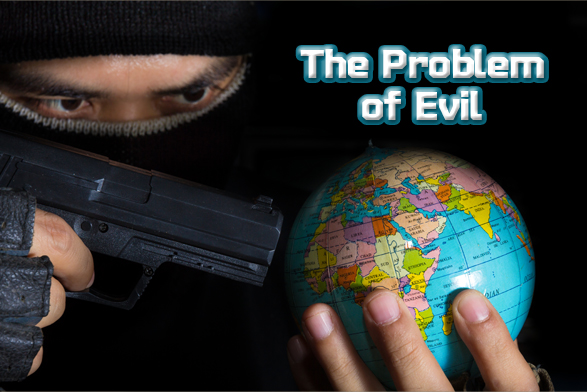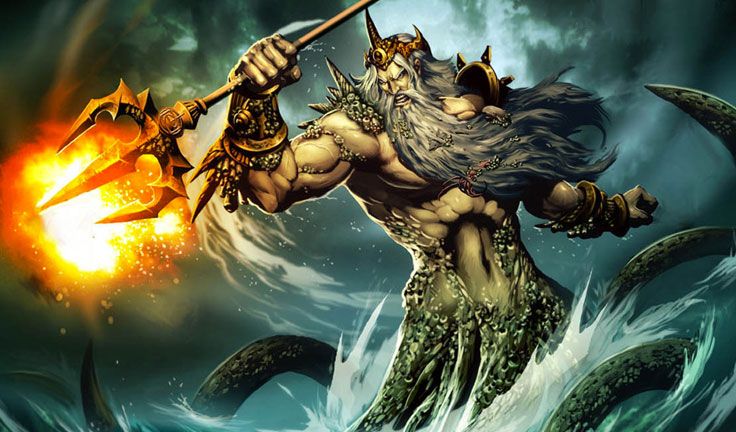How the world used to be viewed;
There were many mythological views about our physical universe. For example, the Egyptians described natural events, like a storm, as their sun god Ra traveling in his chariot across the heavens. The Greeks attributed storms and earthquakes to the wrath of Poseidon, their god of the sea. It was an ‘enchanted’ universe where the gods acted capriciously.
So investigating the universe was seen as invading the gods territory. Since the gods acted capriciously, it didn’t make sense to investigate the universe. Yes, there were inventions & discoveries that took place but they were few and many happened by accident. There was a deductive method of reasoning but this method can only take you so far in investigating the world. Because of peoples beliefs that this was the gods realm, very little real scientific investigation took place. The so-called Aristotelian philosophy of science held sway for thousands of years.
But Christianity posited a rational God who was separate and distinct from His creation and built His universe on rational laws that could be discovered and used to fulfill the Genesis 1:28 creation mandate to have dominion over the earth. So, according to Christianity, the universe became ‘dis-enchanted’ and ordered. But it took hundreds of years to overthrow this Aristotelian view of the world, even in the church.
All other cultures had some rudimentary science but it never fully developed because of their religious views of the universe. These views produced a ‘stillborn’ science. They could only go so far.
– Islam taught that God intervenes at every moment to make events happen as they do, so there was little need to investigate the universe. Much of Islam’s science came from places they conquered. Yes, they had some great scientists but they were far and few between.
– Despite the wealth & sophistication of China, science never fully developed there because there was no assurance of a divine being that developed rational laws.
– Aristotelian philosophy saw the gods and the universe as intertwined. For example, the Greeks saw the planets as having feelings and intelligence and this is what made them
move.
– the animists of central and southern Africa didn’t investigate the world around them since everything in it contained spirits of various gods or ancestors and they didn’t want to invade their territory.
During the medieval era in Europe, Christians began to throw off the Aristotelian philosophy. For several centuries, monasteries were the only places in Europe that acquired, preserved and transmitted knowledge. From these came the founding of universities. Many of America’s earliest colleges & universities began as Christian institutions…Harvard, Yale, Princeton, Dartmouth, Brown, Northwestern, William & Mary, etc. From the Middle Ages to the Enlightenment, a period of several centuries, the church did more for western science than any other institution.
The Protestant Reformation, along with the above, gave people a new way of looking at the world. Christianity posited that since God is a rational God, the laws of the universe that He created will be rational also. Because of the Genesis 1:28 mandate, humanity has a ‘calling’ to investigate God’s creation, to explore and subdue it for our benefit. Robert Grosseteste,a Franciscan bishop and the first chancellor of Oxford University, his student Roger Bacon, also a Franciscan monk and later Francis Bacon, all devout Christians, founded the modern scientific method. Historian Lynn White shows how this new scientific method launched an explosion of innovations and inventions starting in the 13th century. The 14th century was one of the greatest inventive eras of mankind. Between the trial and error agricultural techniques of the monasteries and the new science of the universities, Europe developed a new way of understanding nature and making it work for human purposes.
The first professional scientist societies started in the late Middle Ages. The overwhelming majority of them were made up of Christians. The most prestigious scientific society in the world, the Royal Society of London, was founded in 1645 with 7 of its 10 founding members being Puritans….yes, those Puritans that you’ve heard so much about. Many of them viewed their work as a fulfillment of Genesis 1:28. The protestant reformation just added fuel to the fire. Europe then leapt over all other cultures scientifically.
Here’s a partial list of leading scientists who were Christian:
Copernicus, Kepler, Volta, Galileo, Brahe, Descartes, Leibniz, Boyle, Newton, Pascal, George Washington Carver, Dalton, Faraday, Herschel, Joule, Lavoisier, Kelvin, Ohm, Ampere, Pasteur, Maxwell, Planck, & Mendel. Gassendi & Mersenne were priests. So was George Lemaitre, the Belgian astronomer, who first proposed the big bang theory for the origin of the universe. Mendel was an Augustinian monk. Copernicus was a canon in the Krakow cathedral. Newton, perhaps the greatest scientist of all time, wrote more on theology than on science. Boyle was an Anglican who wrote on both science and theology.
Virtually all scientists from the Middle Ages to the mid-18th century were sincere Christians who explained their motivations & discoveries in Christian terms.
Scientific thinking cannot thrive in cultures where capricious gods act on whims to influence daily events. It is only the biblical view of God and His creation that allows for the expectation of discovering rational laws of nature. And it is only the biblical view that calls for a study of creation to better understand the Creator, properly rule the creation, find cures for disease, increase food production, produce technology, etc., for the good of humanity.
Alfred North Whitehead, the renowned philosopher of science, said that the origin of modern science required Christianity’s “insistence on the rationality of God”.
Science was truly the handmaiden of Christianity.
References:
Books;
“The Genesis of Science: How the Christian Middle Ages Launched the Scientific Revolution” by James Hannam
“How Christianity Changed the World” by Alvin Schmidt, pages 218-247
“The Soul of Science: Christian faith and Natural Philosophy” by Nancy Pearcey & Charles Thaxton
“What’s So Great About Christianity” by Dinesh D’Souza, pages 83-114
Websites;
www.icr.org/article/427/290
http://creation.com/biblical-roots-of-modern-science
For His Kingdom,
Dave Maynard
BSSSB-LLC.com









